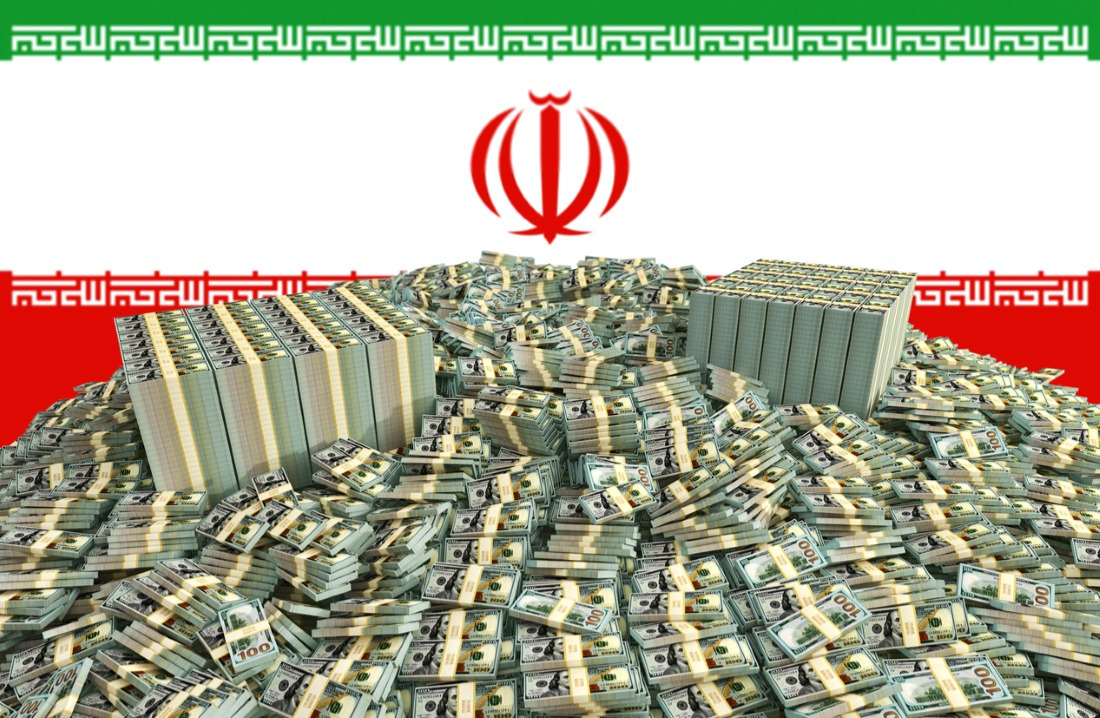
In Iran's latest presidential elections, the candidates revealed that they are concerned about the possibility of former President Donald J. Trump winning the upcoming US election. From their perspective, a victory for Trump would be detrimental to their interests.
Since assuming office, the Biden-Harris administration, in the tradition of former President Barack Obama, released billions of dollars to Iran. In addition, there was lax enforcement of existing sanctions, waiving of other sanctions and no secondary sanctions whatsoever -- meaning that any country that does business with Iran is banned from doing business with the US -- placed on Iran to discourage other countries from financing it.
China therefore has become Iran's largest customer, and Europe conducting business as usual. This financial relief has come alongside a lenient attitude towards the advancements in Iran's nuclear program. These include more than 160 Iranian military attacks against US troops just since October; virtually shutting down the Suez Canal, thereby forcing ships, unable to buy insurance, to detour around Africa; Iran's and its terror groups' military actions in the region, including the war against Israel, and Iran's military support to Russia to attack Ukraine.
These actions demonstrate that the Biden-Harris administration has not only been accommodating Iranian interests, but also has actually been funding both sides of two wars against the US and its allies. Thanks to the Biden administration's effectively hobbling domestic US energy production the first week in office, the US has been buying oil from Russia at inflated prices, enabling it to attack Ukraine. The Biden administration has also been funding Iran and its proxies in its war against Israel, and has been funding Israel as well. The Biden administration has even continued -- unconditionally and unlawfully -- to give the Palestinian Authority millions of dollars, much of which it uses to pay "$350 million a year in Pay-for-Slay terror rewards" to terrorists and their families who murder Jews. It is noteworthy that the EU and the World Bank are also accessories to funding this terror.
The Iranian regime has been freely flouting sanctions under the Biden-Harris administration. Iranian oil exports have surged, financing Iran's military actions. In the first quarter of 2024, Iranian oil exports saw a dramatic increase, reaching an impressive 1.82 million barrels per day— a level not seen since October 2018, shortly before the Trump administration reintroduced oil sanctions. Oil revenues traditionally make up nearly 80% of the country's total income.
By contrast, under the Trump administration, the situation was starkly different; By the conclusion of his first term, Iran faced severe political and financial difficulties. The Iranian economy was nearing collapse, with inflation and unemployment reaching unprecedented levels. The regime struggled to pay its employees. The economic conditions in Iran became so dire that some officials even warned of a potential revolt and the possible collapse of the Islamic Republic.
The Iranian regime was in survival mode and desperately needed cash to maintain its power as oil exports dwindled under the Trump administration. Before the Trump administration re-imposed sanctions on Tehran and implemented the "maximum pressure" policy, Iran was exporting more than two million barrels of oil a day. By the end of Trump's first term, Iran's oil exports had plummeted to around 70,000 barrels a day. Additionally, Iran's currency, the rial, had significantly depreciated in value, further exacerbating the regime's financial struggles.
The Trump administration's sanctions forced Iran's leaders to cut funding to militias, allies, and terror groups. The regime's militants reportedly were not receiving their salaries or benefits, preventing them from fighting. As one Iran-backed militia fighter in Syria told The New York Times, "The golden days are gone and will never return. Iran does not have enough money to give us."
Soon, however, under the Biden-Harris administration, those "golden days" returned. Once again, Iran had the capacity to bolster its Shiite armies and their proxies, including Hamas Palestinian Islamic Jihad in Gaza, Hezbollah in Lebanon, the Houthis in Yemen, Iran's militia, the Islamic Revolutionary Guard Corps (IRGC), and the approximately 40 Iraqi Shiite groups under the banner of the Popular Mobilization Forces.
Hezbollah's leader Hassan Nasrallah openly acknowledged that without Iran's financial and military support, many militia and terror groups might have been unable to survive:
"We are open about the fact that Hezbollah's budget, its income, its expenses, everything it eats and drinks, its weapons and rockets, are from the Islamic Republic of Iran... As long as Iran has money, we have money... Just as we receive the rockets that we use to threaten Israel, we are receiving our money. No law will prevent us from receiving it."
When the Biden-Harris administration assumed office, the influx of cash again allowed the mullahs to suppress domestic opposition with greater force; arm their terror groups; initiate massive aggression against Israel; support Russia, and supercharge their nuclear program. That financial support also enabled them to compensate their radical loyalists, promote the regime's revolutionary ideals, and solidify the power of Supreme Leader Ayatollah Ali Khamenei.
It is no wonder why Iran is apprehensive about the prospect of a Trump victory. Under Biden-Harris or Democratic leadership, the Iranian regime enjoys financial benefits and total impunity. Under Trump, the "golden days" might again come to an end.
Dr. Majid Rafizadeh is a business strategist and advisor, Harvard-educated scholar, political scientist, board member of Harvard International Review, and president of the International American Council on the Middle East. He has authored several books on Islam and US Foreign Policy. He can be reached at Dr.Rafizadeh@Post.Harvard.Edu


